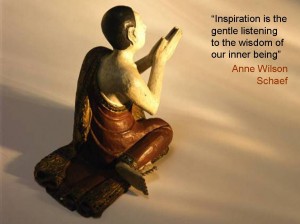As a coach I regularly hear about troubling events and circumstances in the lives of my clients. Many people ask me how I keep my distance emotionally when I hear such stories of desperation. As a coach (and even as a friend) the only way to bring the best of myself to the situation is to have a mindset that some (especially Buddhists) call compassionate detachment.
Compassionate detachment can be defined as the way in which I relate to others when I allow them to deal with their own problems and become responsible for their own issues, while I express a loving concern for the nature of their current predicament, and simultaneously stay detached from the outcome (this definition is the compilation of other definitions found on the web).
The important thing here is that I stay detached so that I do not step in to attempt to resolve their problem, their pain, their issue for them. It does not mean I care less for them. It does not mean they – and the outcome – are not important to me.
On the contrary, as a coach it means I care so much, that I deliberately step back – much like the anxious parent observing a baby take its first tottering steps will also step back in order to let the baby manage on its own – so that the other person will come to that point where they decide to resolve for themselves.
Clearly – just as in the case of the baby, I am always on the lookout for sharp table corners or dangerous steps, where the baby might hit his head or fall down – My objective is to be lovingly present to help the individual with a problem or an issue – But not to rescue.
When people get into a rescue mode, they are generally working for their own agenda. As rescuer, we are generally not working so much on the other person’s issue, as on our own…
Another reason that I practice compassionate detachment is to realise that some people leach life energy out of me… in their need to discuss their problems, and in their need to be listened to … over and over and over again … they become energy drains. I tend to know very quickly when I am with someone like that, because I feel weak after spending some time with them.
My advice to you, after many years of ‘feeling the drain’, is that you will be a much better friend, a much better partner, parent or child, and also – a much better coach – if you remain compassionately detached, and promote self-responsibility and accountability in the other individual.
‘Til next time…
Helen .
.




